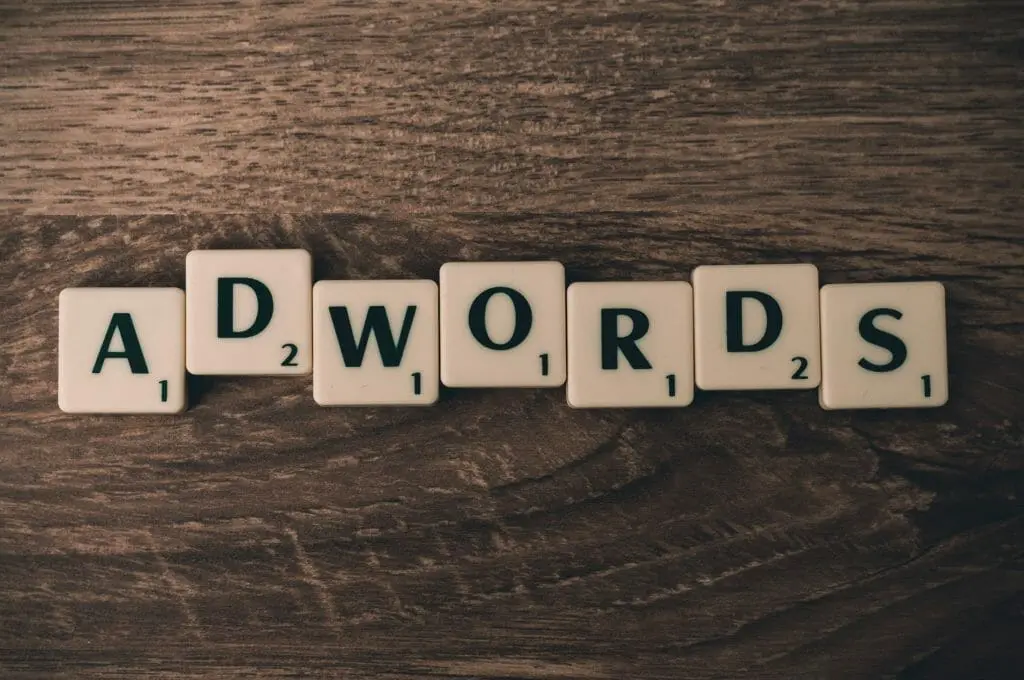Now is an essential time for SME hospitality businesses to stand out from the rest. Many travellers, especially millennials, are choosing independent properties over chains, hoping to get a more local and authentic experience out of their trip. (The rise of Airbnb is playing a significant factor in this trend). The big chains can’t compete with the independent's unique connection with their towns and cities. With the shift of customer preference away from large hotels and toward the authenticity of the independent property, the time has come to market yourself alongside the big brands. Google Ads is one of the best ways to advertise your location in this way.
In this blog, I am going to show you how to stand out from the crowd by using 3 effective Google Ads tips.
If you would prefer the audio version of this blog, check out my Anchor podcast page
Why Use Google Ads?
Google Ads is the most extensive online advertising network in the world. In addition to its comprehensive, yet targeted, reach, you don’t have to spend a lot of money to get a lot out of it. With its pay-per-click advertising model, you can set your daily budget so that Google can’t charge you more than the maximum amount that you’ve set.
You'd probably assume that you’d need to spend a lot of money to compete with big chains and OTAs. In the age of the Internet, this isn't necessarily true. The right keyword strategy can give your independent property impact comparable to any large hotel. That's why useful, compelling headlines and well-chosen keywords matter.
Here are three ways you can use Google AdWords to boost your bookings.
1. Bigger Advantages with Expanded Ad Text
In 2016, Google announced changes to the amount of ad text that would be available to advertisers. Before the modification, one 25-character headline and two 30-character descriptions lines were allowed per ad. The expansion allowed for two 35-character headlines followed by one consolidated 80-character description line. The new expanded text ads were twice the size of the old ones!
Here’s what this means for you.
Bigger ads maximise your exposure. The expanded text works better on mobile devices while still being active on desktops. Since Google killed off right-side ads, these text changes streamline the reader’s search experience through multiple platforms. That gives you more space to brag about your unique selling points! If you struggle to fill all that real estate, talk up all the reasons that people prefer to use independent hospitality services over traditional hotels.
- What is unique about your property?
- Is it close to a significant landmark?
- Does the free breakfast feature authentic local food?
- Do guests adore the distinctive architecture and décor?
- The expanded space is a perfect chance to differentiate yourself from the competition. Hotels are bland, but every independent property is different and interesting.
2. The Long-Tail Keyword
Keywords are words or phrases that people enter into Google to search for the information they need. For example, if a traveller wants to find a property in Cornwall that is pet and child-friendly, they might type the following:
“Family and pet-friendly hotels in Cornwall.”
Here’s where the AdWords Keyword Tool comes in. This tool allows you to enter and assess words that you think the customer will search for and will automatically show you other relevant words and phrases. It will also indicate how often people search for your phrases and the competitiveness of your favourite keywords.
Being accurate or descriptive with your keyword research will naturally yield results that are fine-tuned to your guest's interests. Sometimes, it's a good idea to use multiple keywords together for maximum effect. Descriptive and more detailed keyword phrases are called long tail keywords.
For example
If you simply Google “hotels in Cornwall,” your independent hotel won't appear at the top of Google's organic results page. This is because you’re competing for that same space with Marriott, Booking.com, and other big hospitality companies. These large interests spend MILLIONS to ensure they are always at the top of the results list for such vague and generic searches. They're trying to target a potential customer at the start of their “Booking Process”
This is why you should forget about spending ad money on short tail keywords. Detail is your friend. Focus on those long tail keywords. You may draw less traffic with a long tail keyword than you would with a general one, but the traffic will be better focused. In other words, you'll get fewer views, but more of them will want to stay at your property.
Here are even more benefits of using long tail keywords.
Less competition equals lower costs.
When you use long tail keywords, your ad will appear higher up in the results for relevant searches, and you won't have to pay a premium for every click.
3. Bidding on Your Brand Name
The “secret weapon” of keyword strategy is including your brand name in your keywords. You may wonder, “Why should I spend more money bidding on my brand name when I’m already getting results from standard searches?”
Here are two reasons why it’s an excellent idea to start bidding on your brand:
✅ Self-defence. Competitors may bid on your brand themselves in order to compete with you, and because they are using your name for their keywords, there’s a chance that their ad will appear above yours in search results. Many users instinctively click on the first result they see because they think that is the most “relevant” web page. Bidding on your brand is a preemptive way to make sure your name isn’t used against you.
✅ It looks good. If the search results page is dominated by your brand in both paid and “organic” searches, then it shows the searcher that you are a dominant hotel for the area.
Aim to draw customers who are already near the point of conversion. People who are searching for your property name are further along in the booking process than people who google something generic. They may have heard of your property from friends, or even be returning guests who have forgotten your email or want to catch up on rates.
My advice and conclusion
The most critical piece of information I can pass on to you about Google Ads and Pay Per Click advertising, in general, is just to do it.
I have many people come to me and say that they “tried Google Ads in the past, but it was ineffective.”
When I ask questions and dig deeper into what they actually did, I find that they just scraped the surface on what they could achieve. Often, they were far too vague when they chose keywords, and as a result, spent a lot of money trying to be seen. Worst of all, they didn't even get any bookings on the back of it.
✅ If done right, Pay Per Click advertising is like printing money.
❌ If done wrong, you might as well be setting that money on fire.
If you want help and advice on how to set up Google Ads the right way, then head over to the Boostly Training site, where I have some tutorial videos that will get you bookings.
For more info on Google Ads, check out this video:





